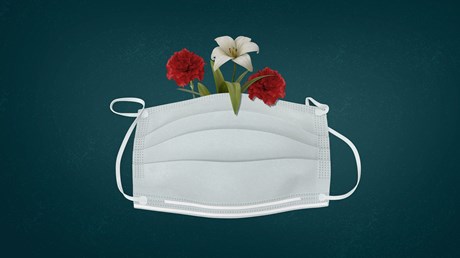The concept of competitive agency pits God’s actions against our own. But they go hand in hand.

The first thing to say about our battle against COVID-19 is that it represents a feat of human genius and diligence. Our dash from discovering a deadly virus to administering the first batch of vaccines in less than a year is a testament to a lot of people doing a lot of hard work. Medical researchers, public health officials, doctors, nurses, and first responders have labored heroically, day in and day out.
The second thing to say about our battle against COVID-19 is that it represents an act of God. Vaccines, ventilators, hand washing, face masks, and healing are astounding gifts of grace amid suffering and illness.
There is no contradiction between these two ideas. Our work and God’s work are blessedly and inseparably entwined.
But in public discourse, we often pit human and divine causality—God’s efforts and ours—against each other. Case in point: Last April, New York Governor Andrew Cuomo explained declining coronavirus rates by saying, “Our behavior has stopped the spread of the virus. God did not stop the spread of the virus.”
In my latest book, I call this idea “competitive agency”: If human responsibility and work are involved, God’s responsibility and work are not, and vice versa.
This view runs rampant even among some Christians. In California, former congressional candidate DeAnna Lorraine put it bluntly: “If you have a mask on, it means you actually don’t trust God.” (It seems this logic could also apply to wearing seat belts, driving the speed limit, or locking your doors at night.)
Finance guru Dave Ramsey has suggested that to wear masks or take other COVID-19 precautions is to live in fear. Other leaders, too, have echoed this idea. The implication ...
from Christianity Today Magazine
via


.gif)

.gif)
.gif)
